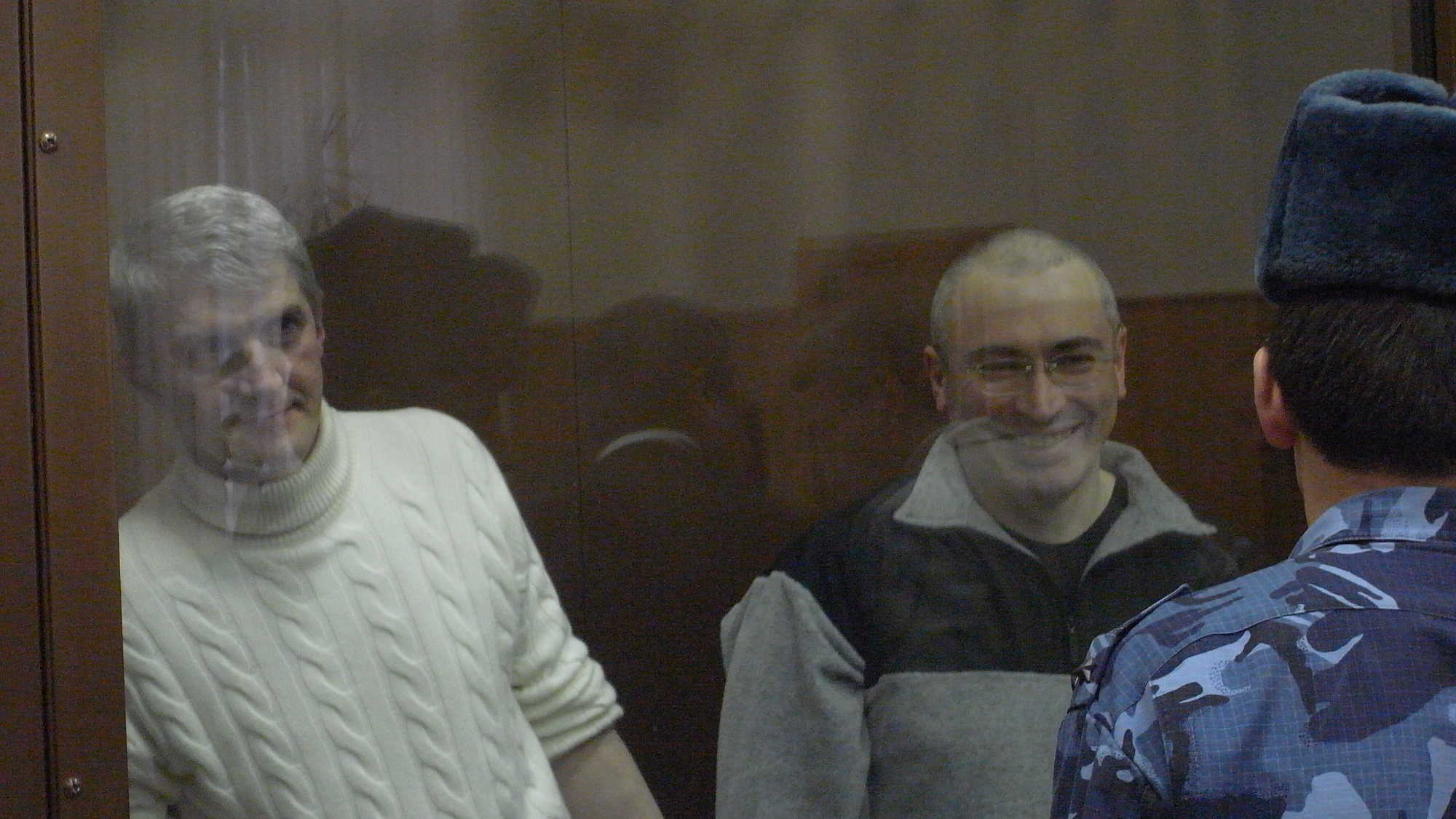Eye-opening doco about the Russian oil oligarch, widely seen as a challenge to Putin and now in a Siberian prison. “Thoroughly researched and highly entertaining… a pungent portrait of contemporary Russia.” — Variety

Thoroughly researched and highly entertaining... a pungent portrait of contemporary Russia.
Screened as part of NZIFF 2011
Khodorkovsky 2011
In October 2003, Russia’s richest man was arrested as he stepped off his private jet. Two years later, the 40-year-old oil company owner, ranked 16th on the Forbes list of the world’s wealthiest people, was in a Siberian prison nearly 5,000km fromMoscow, having been found guilty of tax evasion and fraud. Mikhail Khodorkovsky’s real crime, it is widely believed, was to pose a political challenge to his former ally, Vladimir Putin. As one former Khodorkovsky colleague remarks in this absorbing film, ‘to scare off a pack of wolves, you don’t have to kill them all; you just try to kill one – the most beautiful, the smartest, the fastest.’
Director Cyril Tuschi’s doggedness and curiosity lead him around Russia, to Washington, London (‘Moscow-upon-Thames’) and Tel Aviv and finally back to Siberia, where at last he is able to question Khodorkovsky directly. The prisoner is strangely serene – perhaps because he realises the hopelessness of his defence against fresh charges of embezzlement and the protracted incarceration they will bring.
Astute and edifying, Khodorkovsky delivers a careful biography of this intriguing character, but also a picture of the crooked political machinations of Perestroika, and subsequently Putin’s Russia, that would enable the oligarch’s rise, and later insist upon his fall. It is also a courageous piece of journalism, in a country where such courage can be perilous. Tuschi is warned by one well-wisher that his task is foolhardy; that, if he insisted on looking at real people, to ‘be sure they’ve been dead for at least 150 years’. Thankfully, it is advice he ignored. — TM